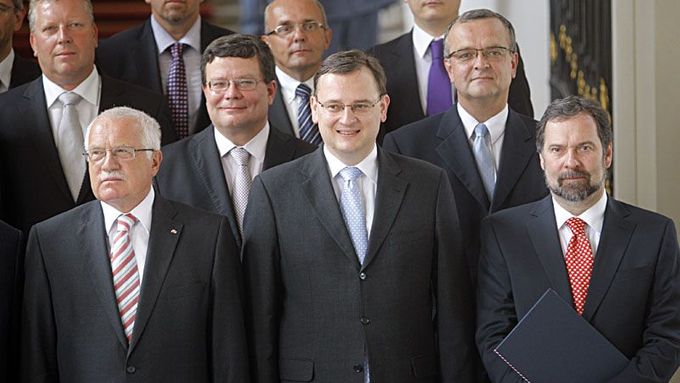Prague - The center-right government of PM Petr Nečas is currently suffering from the deepest crisis for its nine months of existence.
In addition, the crisis came precisely at the moment when the government was finally about to start implementing its key agenda. The pension and health care reforms are still in their most basic draft form, and the fight against corruption has never even had a chance to start.
Read more: Czech government seeks support of turncoats to survive
Read more: Czech govt party disintegrates, coalition threatened
In spite of this, the coalition has been quite busy in its first months of existence. However, ironically, the government that deems to uphold “fiscal responsibility and austerity“ has shown that it is exceptionally good at increasing taxes as well as the power of public administration.
Tax hikes, new fees
In the last nine months, the center-right government has presented 84 bills to the lower chamber for consideration. Five of them were aimed at reducing or even abolishing some welfare benefits, three introduced tax hikes, and four implemented fees for public services.
The most significant reform is the government's plan to decrease new pensions and increase of the retirement age by two years. The bill is currently in its second reading in the lower chamber.
The controversial VAT hike is expected for 2011, but the government has already managed to increase consumption and income taxes. New health care fees proposed by Health Care Minister Leoš Heger are still being prepared, but the road taxes and court fees have already been increased.
Centralization of public administration
The second dominant direction of the government's activity is the centralization of public administration.
Finance Minister Miroslav Kalousek (TOP 09) plans to create a financial super-office that would collect all taxes and insurance payments while also controlling state expenses. Kalousek has yet to officially present his plan to the government.
Labor Minister Jaromír Drábek (TOP 09) has similarly proposed a labor super-office, which would handle job offers for all the country and pay all social benefits including those currently distributed by municipal offices.
Other bills increase repression and monitoring of some parts of the society, such as foreigners or the so-called “socially inadaptable“.
The most extreme proposals have been raised by ODS deputy Ivana Řápková, who wants the state to be able to seize welfare benefits of those who commit serious offenses against the law. These offenders would also be banned from their cities. However, the government argues that it is not possible to punish people two times for the same offense.
In its energy policy, the government appears to favor nuclear energy over renewable resources, even though it has not yet approved the expansion of the Temelín nuclear plant.
Beat corruption? Mañana, mañana...
The government's anti-corruption efforts seriously lag behind. Interior and finance ministers have yet to present their new draft bills to implement new mechanisms to control public finances. Local Development Minister Kamil Janovský appears to be more productive - he has already presented his amendment to the law on public tenders.
If the bill is approved, every public procurement worth more than CZK one million (EUR 40,000) will have to issue a public tender. Currently, even CZK two million contracts can be awarded without any bid. In the case of construction contracts, the no-bid limit is as high as CZK six million.
Also, the fact that three ministers have been already subjected to corruption scandals, with one of them (Drobil) forced to resign, cast rather negative light on the government's proposed anti-corruption effort.
Read more: Czech government survives motion of no-confidence






